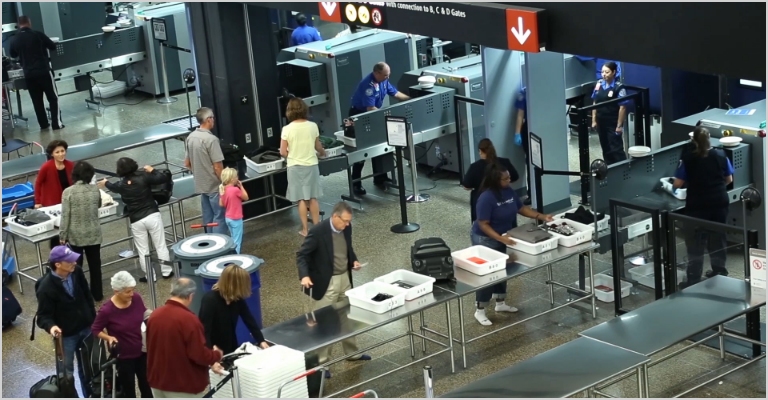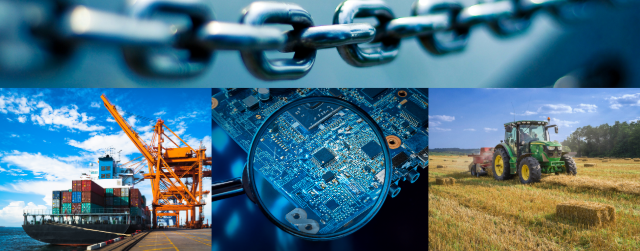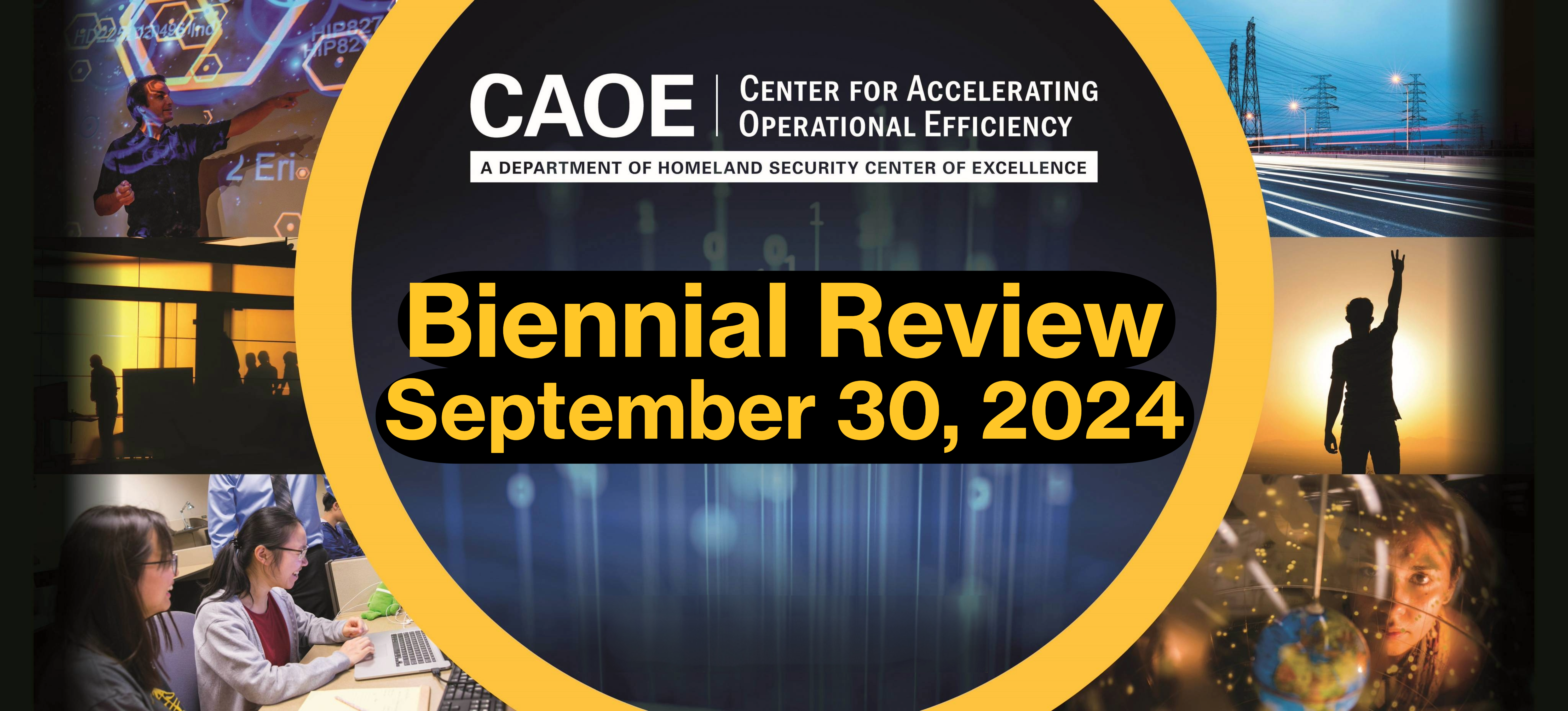The Center for Accelerating Operational Efficiency (CAOE), led by Arizona State University, develops and applies advanced analytical tools and technologies to enhance planning, information sharing and real-time decision-making in homeland security operations.
The research at CAOE helps the Department of Homeland Security improve efficiency and security at our national borders, ports and airports through better prediction and response to emergencies.
Established as a Center of Excellence by the Department of Homeland Security Science and Technology Directorate.

Featured past projects

Enhancing AI for Homeland Security
The Multisource AI Scorecard Table (MAST) for Evaluating Generative AI in Worker-Automation Team Tasks (MEGAWATT) project aims to leverage MAST, a tool rooted in Intelligence Community Directive (ICD) 203, to evaluate and enhance the performance of large language models (LLMs) like OpenAI’s ChatGPT.

Unlocking Software Safety with CHIAUS
The CHIAUS project aims to revolutionize risk communication in software development and consumption by integrating human-centered interactions with Software Bill of Materials (SBOM) data. Led by Principal Investigator L Jean Camp and her team at Indiana University, the project addresses the pressing need for actionable, understandable risk communication in the software ecosystem.

Fortifying Security Screenings by examining human-AI interaction
In the realm of safety science, a paradigm shift towards robust engineering offers new insights into addressing the challenges of complex systems, particularly in high-stakes environments like security screening. This project aims to advance the understanding of robust engineering principles within the context of security screening tasks.

Improving airport checkpoint efficiency
The combination of current airport space constraints and limited Transportation Security Officers coupled with projected increases in air travelers and rising number of security threats will put more pressure on TSA staff and resources. This project aims to mitigate issues and enhance outcomes.
Recent news and events

CAOE SCRIPS Workshop Explores Supply Chain Considerations
The SCRIPS Workshop brought together experts from diverse sectors to address critical supply chain issues, including those in agriculture, semiconductors, and maritime operations.

DASSH 2025 is Around the Corner
Explore innovative solutions to critical homeland security challenges at DASSH 2025, co-hosted by CAOE and SENTRY. This hybrid event will focus on addressing the impacts of AI on security, with opportunities to participate as a student, mentor, or judge. Registration is open—don’t miss your chance to participate!

CAOE Biennial Review Highlights
The 2024 CAOE Biennial Review showcased groundbreaking advancements in homeland security research and provided a platform for researchers to present their work, engage with DHS stakeholders, and outline future directions for integrating cutting-edge solutions into real-world applications.
Split-second decision-making. Wise allocation of scarce resources. Accurately predicting cascading consequences of natural and manmade disasters.
These are just some of the complex challenges our country’s homeland security workforce faces each day. The research, systems and technology developed at CAOE provide homeland security agencies with real-time information, predictive tools for resource and response planning, and systems that increase the odds of resolving security problems.
Improving Airport Checkpoints
Dynamic resource allocation for predicted demands at a network of screening facilities.
